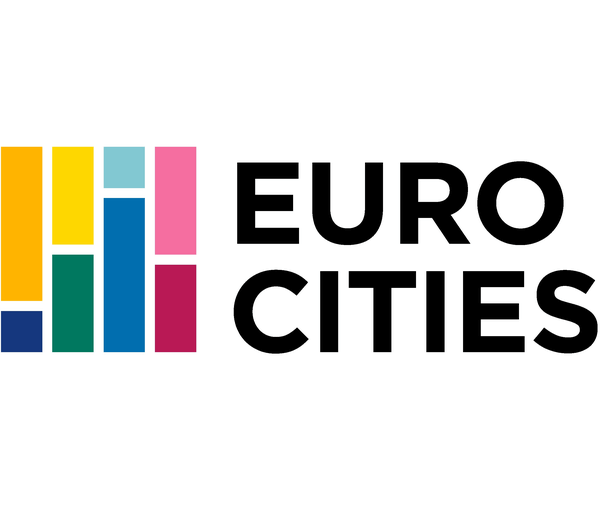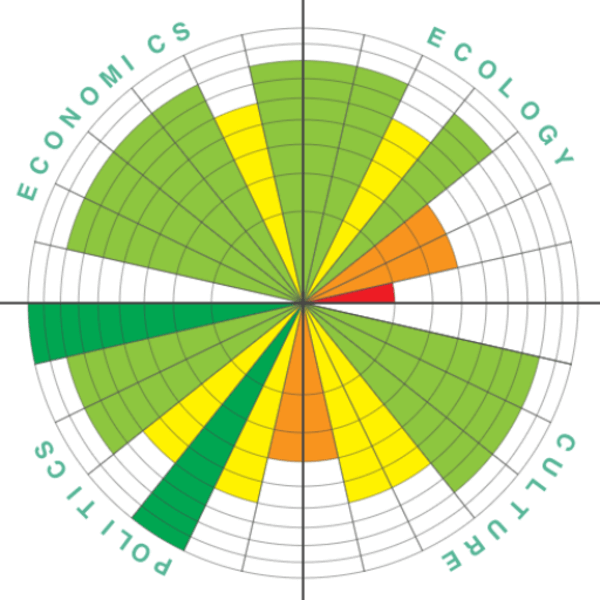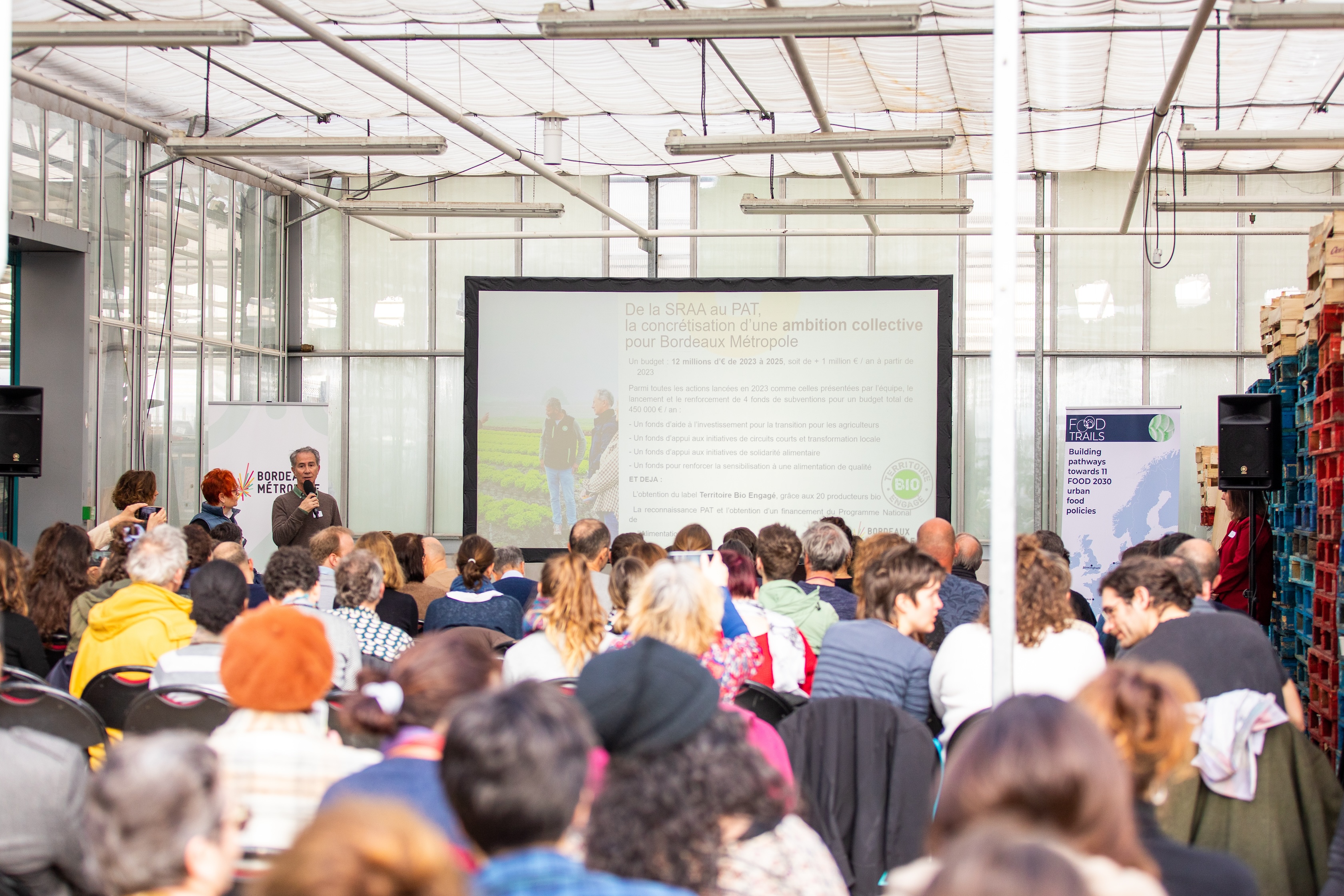 Establishing a Food Policy Council - © Bordeaux Métropole
Establishing a Food Policy Council - © Bordeaux Métropole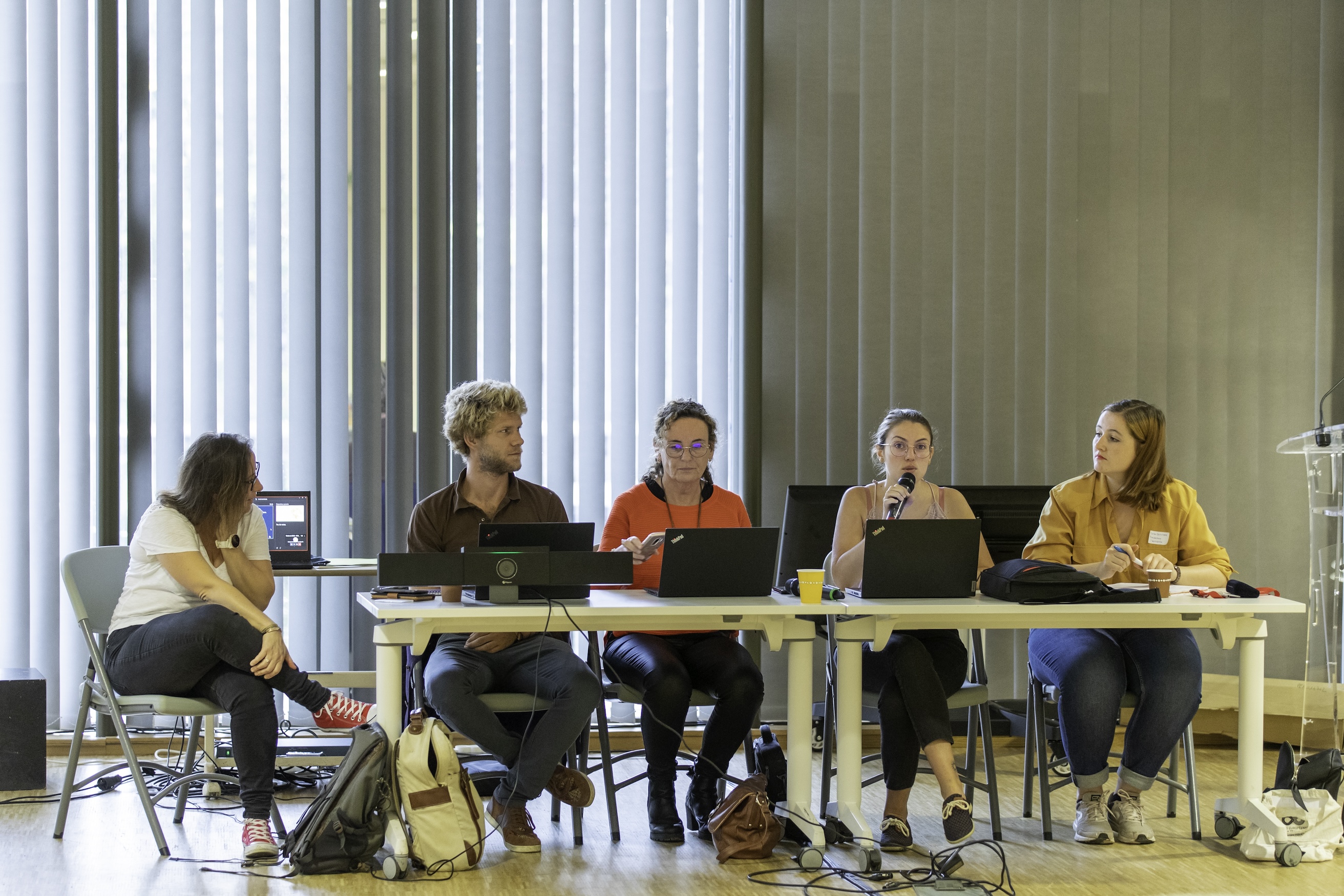 Establishing a Food Policy Council - © Bordeaux Métropole
Establishing a Food Policy Council - © Bordeaux Métropole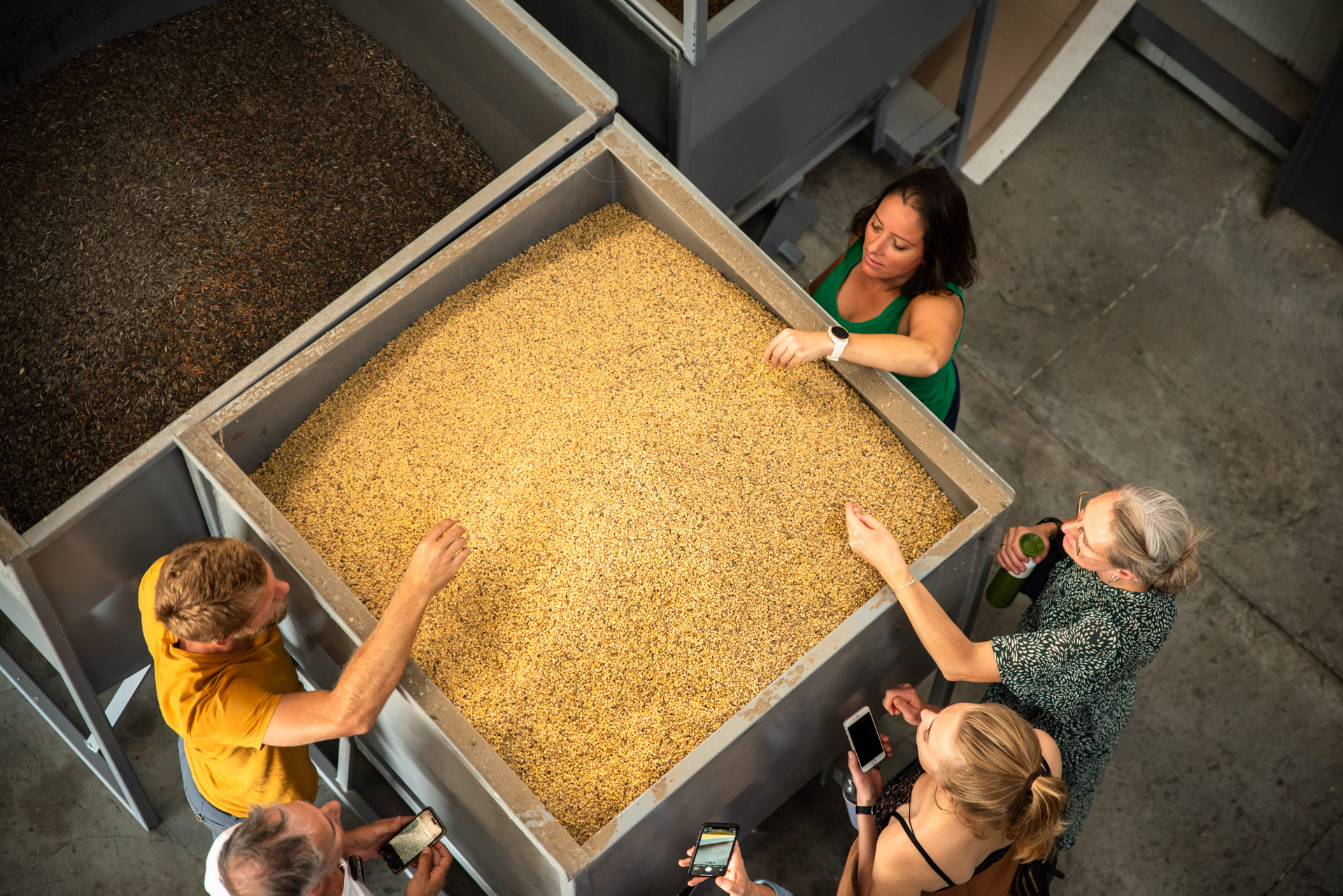 Establishing a Food Policy Council - © Bordeaux Métropole
Establishing a Food Policy Council - © Bordeaux Métropole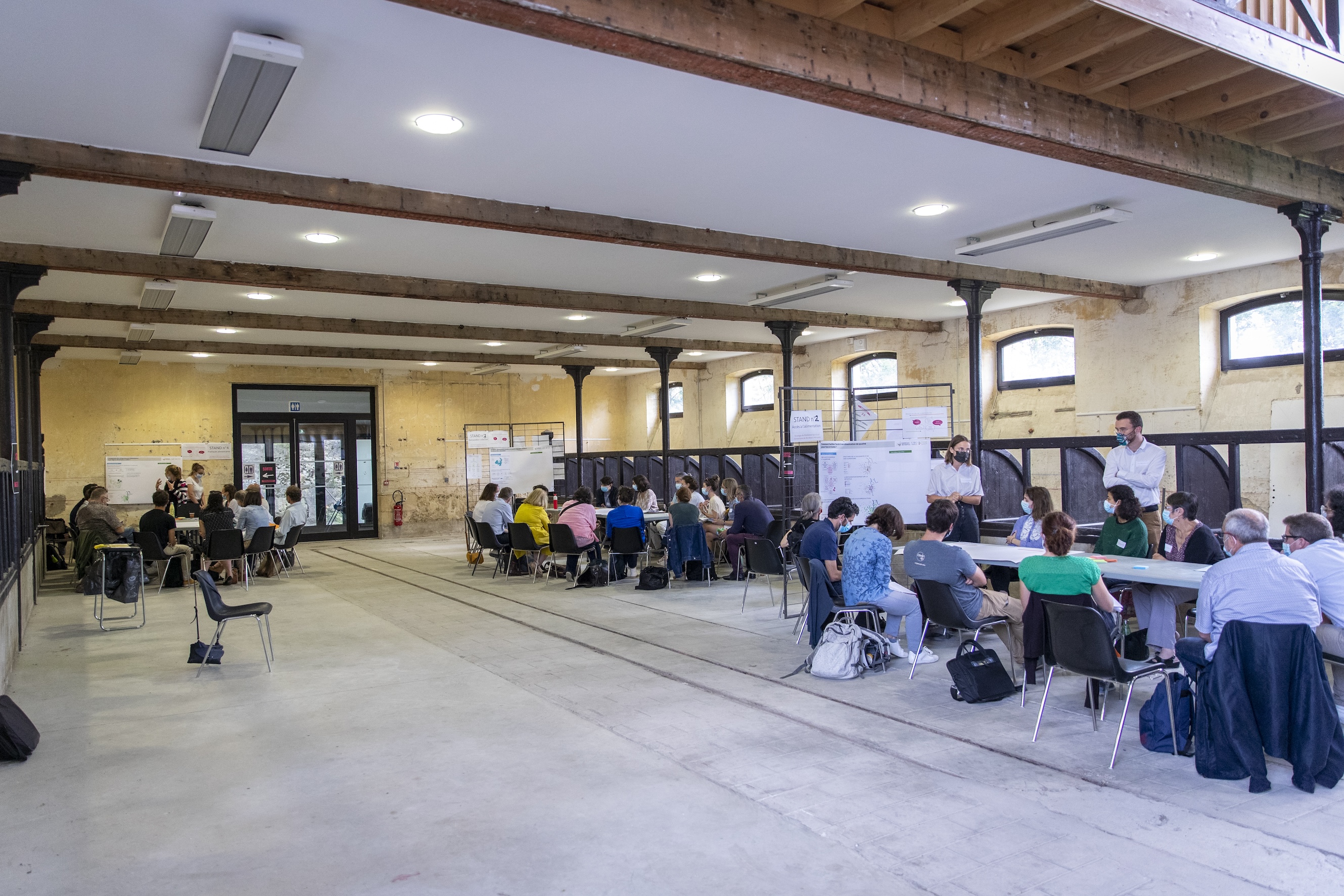 Establishing a Food Policy Council - © Bordeaux Métropole
Establishing a Food Policy Council - © Bordeaux Métropole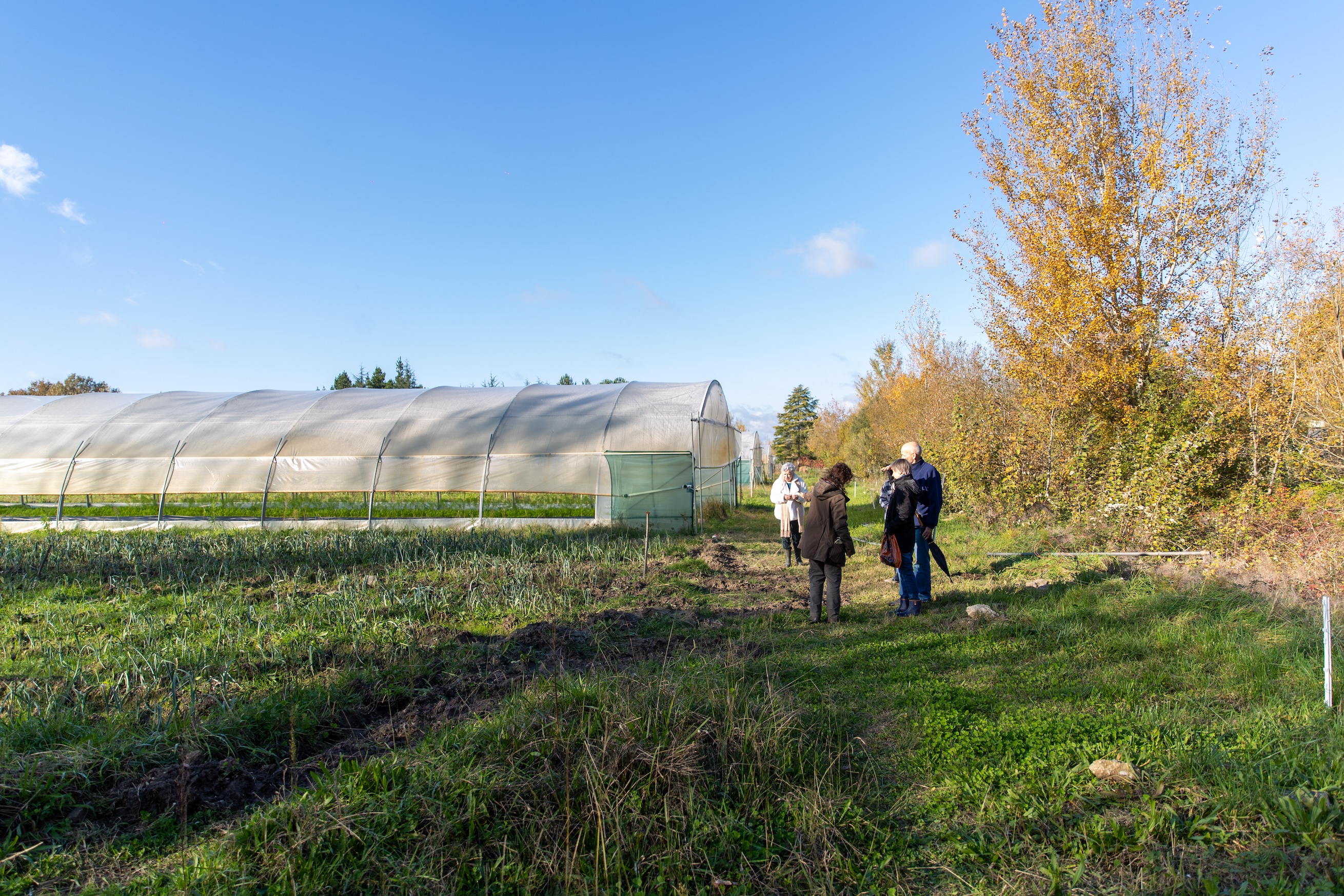 Establishing a Food Policy Council - © Bordeaux Métropole
Establishing a Food Policy Council - © Bordeaux Métropole
City
Bordeaux
Main actors
City Government, Community / Citizen Group, Private Sector
Project area
Whole City/Administrative Region
Duration
Ongoing since 2017
In 2017, Bordeaux Métropole became the first French territory to establish a Food Policy Council, bringing together approximately 130 diverse local agricultural and food system players. From 2017 to 2020, the Council focused on formalizing its internal organization, ensuring shared goals and a democratic way of functioning within the network.
Building on this foundation, in 2021 the Council's members began crafting an ambitious local food policy. This policy takes a holistic approach, addressing food topics from farm to fork, and is designed to be relevant and aligned with the needs of both the territory and its people.
The collaborative process has resulted in a food policy that is shared among stakeholders. Since its adoption, the Food Policy Council has transitioned to become the official governance body, working alongside Bordeaux Métropole staff to implement this comprehensive food policy.
Originally published by EUROCITIES: Link
Eurocities Awards
This project was shortlisted for the 'Eurocities Awards' in 2024 in the following category: Sustainable Food Systems: empowering people.
In 2014, Bordeaux Métropole set out to experiment with shared governance by collaborating with various stakeholders and representatives of the food system to address local agriculture and food issues. Local researchers supported this experimental phase.
Building on this, in 2015, Bordeaux Métropole organized consultative events to define an initial roadmap for transitioning the food system towards sustainability and resilience. These workshops focused on 7 themes, identifying initiatives for each. Notably, the final three workshops were organized by the "Food Governance Council," a precursor to the Food Policy Council, comprising local stakeholders already deeply committed to collaborating with Bordeaux Metropole on governance.
In 2017, Bordeaux Métropole adopted a new global strategy: the Action Plan for the Creation of a Sustainable Territory with a High Quality of Life. Inspired by COP21 targets, this strategy included measures to address significant ecological challenges. Action 20 of this plan focused on creating and implementing a sustainable food and agriculture policy specific to the Bordeaux metropolitan area, aligning territorial development with ecological transition. This action outlined four objectives: protecting agricultural land, supporting farmers, prioritizing certain forms of agriculture, and promoting short distribution circuits for better access to healthy food. To achieve these, Bordeaux Métropole swiftly implemented four packages of operational measures, including adopting an agricultural strategy and establishing the 'Conseil Consultatif de Gouvernance Alimentaire Durable' (CCGAD, Advisory Council on Sustainable Food Governance of Bordeaux Metropole).
In May 2017, the pre-project phase concluded with in a decision by the Metropolitan Council, dated 19 May, establishing the CCGAD for a trial period of three years. The terms of this decision stated that Bordeaux Métropole would be responsible for coordinating the CCGAD and defining its own organisational structure. Moreover, Bordeaux Métropole would determine the topics to be addressed, while the CCGAD’s participants would be free to add any other topics they considered relevant. The council decision also defined the mission of the CCGAD, the roles and organisational structure required, and the expected outcomes.
The main objective of this project was to transform the local agriculture and food system into a more sustainable one through the coordination and collaboration of stakeholders. Accordingly, working with and for the communities involved was the essence of the project.
In 2018, the members of the network, including institutional partners and stakeholders from each college defined four working priorities:
1- Giving every citizen the power to choose a sustainable, high-quality diet
2 - Tackling food waste
3 - Reinforcing the agricultural capacities of the territory
4 - Bringing food production home and nurturing short distribution circuits.
The members of the CCGAD met in early 2018 for a series of practical workshops devoted to identifying collective actions in line with these four priority themes. In November 2018, the members of the network gathered to work together on the text of an official charter for the network. Building on the work done since October 2017, this document served to formally define the mission statement of the CCGAD, its values, the scope of its actions, and its four major roles and priority subjects (corresponding to the four topics addressed by the technical workshops).
In 2020, the Food Policy Council underwent an assessment to determine if it could scale up from an experimental approach to a more official governance body. As a result of this assessment, Bordeaux Metropole added a new role to the Food Policy Council: influence the public policies". Additionally, the service provider of the assessment gave some recommendations to Bordeaux Métropole to improve the Food Policy Council’s organisation: clarify its role, revise the action plan and the internal organisation and integrate the missing stakeholders in the Food Policy Council.
In 2020, Bordeaux Métropole was selected for the European Food Trails project (2020-2024), whose goal is to strengthen the role played by cities in the implementation of food and agriculture policies. Being part of Food Trails provided new resources (especially human resources), methodology and the objective to scale up Métropole’s ambition regarding food policy.
In 2021, due to FoodTrails and a new political commitment, Bordeaux Metropole decided to create a Food Policy. In order to build an ambitious, operational, and realistic food policy that incorporates the local initiatives already in place, a consultation and co-construction phase was established. This approach led to a notably high level of commitment from local stakeholders right from the outset. Bringing together Bordeaux Métropole, stakeholders engaged in the local food and agricultural sectors, and representatives of neighbouring territories, enabled Bordeaux Metropole to identify the challenges and objectives at stake and to determine a plan of action. This phase, which ran from February 2021 to April 2022, involved more than 400 stakeholders from across the territory. The members of the Food Policy Council were the main key stakeholders involved, and Bordeaux Metropole made additional efforts to involve those absent from the Council, such as farmers or economic stakeholders.
In November 2022, an ambitious, operational, and shared food policy meeting the needs of local stakeholders was launched in November 2022, as a result of this consultation and the commitment of all the communities in Bordeaux Métropole’s work.
With the adoption of the Food Policy, the Food Policy Council evolved From 2017-2022, Bordeaux Métropole’s Food Policy Council was only consultative, without political power to influence policies.
In 2023, the Food Policy Council became the official governance body of the Food Policy. To formalise this evolution, its name and legal documents were changed (from Advisory Council for Sustainable Food Governance to Agriculture and Food Council) by a vote in January 2023 at the metropolitan council.
The budget of the Food Policy represents 4 million euros per year, spent on agriculture and food actions. The Food Policy Council doesn’t have a dedicated budget, but a civil servant is assigned fulltime to this mission. Thanks to FoodTrails, as part of pilot actions, Bordeaux Métropole had a specific budget in 2022-2023 for catering and events of the Food Policy Council and 2 officers are working on it fulltime.
The Food Policy Council represents local stakeholders in the agriculture and food sectors, as well as localadministrations committed to food-related work. As mentioned before, the strength of the Food Policy Council lies in the diversity of stakeholders involved, aiming to be representative of the local food system.
As noted, the members of the Food Policy Council are organised into constituent groups, intended to reflect the diverse spectrum of stakeholders involved in the local food system:
Group #1: public policymakers and those that support their work
e.g. local authorities, public bodies, government agencies, associations, researchers, neighbouring territories
Group #2: food producers and those that support their work
e.g. farmers (in rural, peri-urban and urban contexts), interprofessional organisations, unions, associations, cooperatives and other group structures, chambers of agriculture, research bodies
Group #3: food produers and those that support their work
e.g. artisan food producers, industrial manufacturers, producer-processors, associations, cooperatives, chambers of agriculture, processing facilities, research bodies
Group #4: food retailers and those that support their work
e.g. Associations supporting small-scale agriculture (AMAP) and other farm-to-consumer initiatives, small and large retail networks, grocery stores (including solidarity-led models), farm shops, food banks, chambers of agriculture, logistical organisations, wholesale market
Group #5: organisations working to raise awareness, support producers’ and consumers’ rights and help citizens to change our eating habits for the better
e.g. representatives working on subjects such as food for all, self-sufficiency, reducing food waste, nutrition, health and the environment.
To date, more than 100 organisations have signed the charter and are official members of the Food Policy Council and 300 people participate in the network (meetings etc).
Participation of citizens:
During the initial phase of the Food Policy Council (2017-2023), citizens actively participated in its activities, with one member of the steering committee being elected as a representative of the citizenry.
In 2023, as the Food Policy Council evolved into a more institutionalised role, its members made the decision to transform it into a professional network. However, recognising the importance of citizen engagement, the Food Policy Council committed to implementing actions for the benefit of citizens.
More than 300 people are involved in the meetings of the Food Policy Council and 104 organisations signed the charter and are official members of the Food Policy Council.
The Food Policy Council underwent an assessment in 2020. The main results showed that members were satisfied with their participation, and that the Food Policy Council was both relevant and meeting the area’s needs.
The main conclusions of the assessment are given bellow:
Relevance: The network addresses the region's needs effectively. Most respondents express a desire for networking through their participation, seeking opportunities to engage with food system players, articulate their actions, foster coherence and synergy, and actively contribute to collective thinking and the development of a shared vision. These aspirations align with one of the fundamental roles of the Food Policy Council. Following this, there is a desire to engage in dialogue with and influence politicians, share and gather pertinent information, and, lastly, support and contribute to the momentum of a sustainable food system.
Effectiveness: One of the Food Policy Council key strengths lies in its ability to unite a diverse range of stakeholders within the Bordeaux Métropole food system. Through the Council, these stakeholders have found a platform that not only allows, but also encourages them, to express their perspectives and contribute to the establishment of the region's food governance.
Coherence of Food Policy Council Resources: The Council primarily operates thorugh human resources.
Efficiency: The Food Policy Council achieves satisfactory results considering the resources invested.
From 2022, to meet the requirements of the European project Food Trails, Bordeaux Métropole has beenworking on data collection, inparticular the evolution and improvement of the Food Policy Council.
To assess the satisfaction level of network members, the facilitation team conducted a questionnaire comprising approximately 25 questions. This survey provided Bordeaux Métropole with the following information: the relevance of the network animation tools used, professional and personal satisfaction in participating in the networks, achievement of FPC's objectives according to its members, and professional benefits derived from participating in the FPC, among other insights. All the respondents are satisfied to be part of the network and will recommend it to other actors of the local food system. They all consider that this network answers (at least in part) the local agriculture and food challenges.
As part of the food policy, the Food Policy Council will be assessed after three years of activity. The survey conducted for FoodTrails will be conducted annually.
Over time, the Food Policy Council acquired its legitimacy through its work and the quality of its members. To maintain its relevance, the Food Policy Council must consistently ensure the diversity of its members. Some individuals may require additional time to engage and be persuaded to join. It's an ongoing effort for the coordination team to ensure that the Food Policy Council is as representative as possible of the local food system. Even today, some stakeholders, such as private restaurants and grocery stores, are difficult to reach. Some specific groups, like farmers, require continuous effort from Bordeaux Métropole to secure their participation.
Through its food policy, Bordeaux Métropole seeks to directly connect with citizens. For example, at the beginning of 2024, a survey on local agriculture and food promotions was conducted and shared on the citizen participation’s website of Bordeaux Métropole. Promotional tools for the local agriculture and food systems are set to be developed this year, according to the opinions given by citizens in the survey. Nevertheless, Bordeaux Métropole faces challenges in directly engaging citizens due to its status as a local organisation encompassing 28 municipalities. To overcome this, the Food Policy Council has played a crucial role in establishing robust partnerships with social centres and NGOs that have direct contact with citizens. These partners, acting as citizens’ representatives in the Council, facilitate the inclusion of citizens' perspectives in the decision-making process.
As a public organisation, Bordeaux Métropole must strike a balance between the administration's timeline and the stakeholders' desire for quick results.
Building trust over time is key to developing an operational and efficient Food Policy Council. All the members of the network should have the space to share their needs and aspirations, to improve the facilitation of the network to meeting their needs. The facilitation of a Food Policy Council requires time not only to create collectives’ tools and organise meetings but also to provide support to each member if needed. To reach all the stakeholders of the food system, the objectives of the Food Policy Council must be cross-disciplinary and concrete. Attentiveness and availability/time are key criteria to build trust with all the potential partners.
In 2016, Bordeaux Métropole initiated a dialogue with neighbouring public representatives (suburban and rural areas) and aimed to propose concrete solutions that meet the needs of the inhabitants in the field of food. As a result, the metropolis applied to a national call for proposals in 2023 (Call for expressions of interest - Territorial demonstrators of agricultural and food transitions). The aim of the application ("Recol'Terra" project) is to structure local food chains based on territorial cooperation and shared governance between the 41 members of the consortium (private & public players ; urban & rural territories, including 8 neighbouring territories). The aim here is to involve all the stakeholders and thus transcend administrative boundaries on a subject that requires it: ensuring a sustainable food system for all.
External links / documents
On Map
The Map will be displayed after accepting cookie policy
